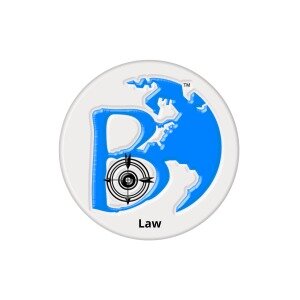Best Military Law Lawyers in Jamaica
Share your needs with us, get contacted by law firms.
Free. Takes 2 min.
Or refine your search by selecting a city:
List of the best lawyers in Jamaica
About Military Law in Jamaica
Military Law in Jamaica governs the conduct of members of the Jamaica Defence Force (JDF). It is designed to maintain order, discipline, and efficiency within the military ranks. The legal framework is guided by the Defence Act, which outlines the rights and responsibilities of service members, sets out the military justice system, and establishes regulations for military conduct. Although it operates parallel to civilian law, Military Law has its unique procedures and considerations that are crucial for maintaining discipline and order within the armed forces.
Why You May Need a Lawyer
There are several situations in which individuals involved in military affairs may require legal assistance in Jamaica:
- Disciplinary Proceedings: Service members facing charges under the military justice system may require legal representation to defend against accusations and ensure a fair process.
- Appeals: Unfavorable decisions in military courts can be appealed, and legal guidance can help navigate this complex process.
- Administrative Actions: Issues such as promotions, discharges, and other personnel matters may require legal expertise to address grievances or disputes.
- Rights Violations: Military personnel or their families may experience rights violations and need legal help to seek justice or compensation.
- Contracts and Commitments: Entering or exiting military service contracts often involves legal agreements that require careful review and understanding.
Local Laws Overview
The Defence Act is the primary legislative instrument governing Military Law in Jamaica. It covers several key areas:
- Military Discipline: Provides the procedures for court-martial and disciplinary hearings, outlining offenses and corresponding penalties.
- Enlistment and Service: Details requirements and terms for enlistment and service in the JDF.
- Authority and Command: Establishes the chain of command and the powers of military officials.
- Rights and Duties: Defines the rights and obligations of service members and their conduct expectations.
- Military Courts: Sets out the structure and function of military courts, procedures, and appeals.
Frequently Asked Questions
What is Military Law?
Military Law refers to the legal codes and procedures that govern the behavior and conduct of military personnel. In Jamaica, it is primarily driven by the Defence Act, which incorporates both military-specific laws and civilian legal principles.
Can a civilian be subject to Military Law in Jamaica?
Generally, Military Law applies to members of the armed forces. However, civilians working with the military under certain conditions might become subject to military jurisdiction, particularly in situations of martial law or war.
What rights do service members have under Military Law?
Service members retain basic rights outlined in the Jamaican Constitution, though some rights may be restricted for military necessity. They have the right to due process within the military justice system and the protections afforded under the Defence Act.
How are military offenses handled?
Military offenses are addressed through court-martial proceedings or summary hearings. Depending on the severity of the offense, different procedures and levels of command handle these cases.
What kinds of cases do military courts handle?
Military courts handle cases involving breaches of military discipline, such as insubordination, desertion, and other offenses defined by the Defence Act. They may also address matters affecting the good order and discipline of the force.
Can service members appeal court-martial decisions?
Yes, service members have the right to appeal decisions from military courts. The appeal process involves higher military tribunals, and potentially, civil courts on constitutional grounds or other legal errors.
Are military court decisions different from civilian courts?
Yes, military courts apply principles of Military Law, which include specific offenses and procedures not present in civilian courts. Sentences may also differ, reflecting military discipline rather than civilian judicial standards.
How can service members bring grievances to light?
Service members can bring grievances through internal military grievance channels. If not resolved satisfactorily, they may seek legal counsel to explore further action, including appeals or external legal remedies.
What is the role of a military lawyer?
Military lawyers provide legal representation, advice, and support to service members. They may defend against charges, represent clients in appeals, and help navigate administrative procedures affecting service members’ rights and duties.
How do I find a qualified military lawyer in Jamaica?
Qualified military lawyers can be found through referrals from the JDF legal office or by contacting professional lawyers with experience in military cases. Legal organizations and bar associations may also provide recommendations.
Additional Resources
For individuals seeking further information on Military Law in Jamaica, consider exploring the following resources:
- Jamaica Defence Force Legal Office: Provides information and assistance regarding military legal issues and procedures.
- The Defence Act: Available at legal libraries and online platforms, it is an essential document outlining the legal framework governing the military.
- Jamaica Bar Association: Can connect you with legal professionals specializing in Military Law.
- Legal Aid Council: Offers support and advice for those who meet eligibility requirements for legal aid assistance.
Next Steps
If you believe you need legal assistance in Military Law in Jamaica, consider taking the following steps:
- Assess Your Needs: Identify the specific legal issues you are facing related to military service.
- Consult a Lawyer: Seek advice from a lawyer experienced in Military Law to discuss your situation and possible legal remedies.
- Collect Documentation: Gather all relevant documents, including service records, charges, and any correspondence related to your case.
- Understand Your Rights: Become familiar with your rights under Military Law and the procedural aspects of your case.
- Prepare for Proceedings: Work with your lawyer to prepare for any court or administrative hearings, ensuring you understand the strategy and potential outcomes.
Lawzana helps you find the best lawyers and law firms in Jamaica through a curated and pre-screened list of qualified legal professionals. Our platform offers rankings and detailed profiles of attorneys and law firms, allowing you to compare based on practice areas, including Military Law, experience, and client feedback.
Each profile includes a description of the firm's areas of practice, client reviews, team members and partners, year of establishment, spoken languages, office locations, contact information, social media presence, and any published articles or resources. Most firms on our platform speak English and are experienced in both local and international legal matters.
Get a quote from top-rated law firms in Jamaica — quickly, securely, and without unnecessary hassle.
Disclaimer:
The information provided on this page is for general informational purposes only and does not constitute legal advice. While we strive to ensure the accuracy and relevance of the content, legal information may change over time, and interpretations of the law can vary. You should always consult with a qualified legal professional for advice specific to your situation.
We disclaim all liability for actions taken or not taken based on the content of this page. If you believe any information is incorrect or outdated, please contact us, and we will review and update it where appropriate.
Browse military law law firms by city in Jamaica
Refine your search by selecting a city.














